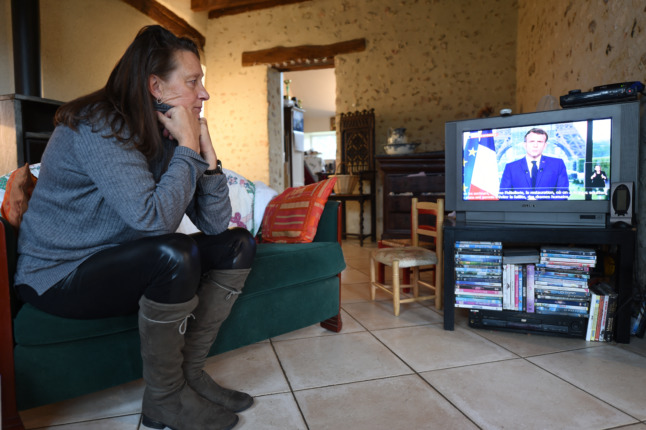Obligatory vaccines and the extension of the health pass made the headlines following Macron’s live TV address on Monday evening, but the President also sketched out his vision for France’s post-Covid economy.
Some of the measures he announced represent a return to the priorities he set at the beginning of his tenure, while others have been shaped by the pandemic.
Pension reform
There had been much speculation about a return of controversial plans to reform France’s retirement system, which were shelved at the start of the pandemic.
Macron confirmed that he planned to raise the retirement age – most people can currently retire at 62, but a number of ministers have been pushing to raise the legal minimum to 64.
“Because we are living longer, we will have to work longer, and retire later,” Macron said. “Not tomorrow, not brutally, and not in a uniform way because we will take the difficulty of a job into consideration.”
The government will begin consultations with workers and employers in September, but “will not undertake the reform so long as the epidemic is not under control and the recovery guaranteed,” Macron said.
This could mean his plans are not implemented before the presidential election in April 2022.
Macron also returned to a controversial point from the 2019 reform plan which lead to widespread protests: the abolition of the country’s 42 different pension regimes, which currently mean many public-sector workers can retire early. Under the new plans, these special regimes will be abolished for new employees, but people currently employed can keep the generous exceptions.
EXPLAINED: What are France’s special pension regimes?
The plan also includes a minimum pension of €1,000 per month after a full career. “A life of work must offer a dignified pension,” Macron said.
Unemployment reform
Changes to unemployment benefits will be “fully implemented” on October 1st. The reform was supposed to come into effect on July 1st, but in June, France’s Council of State decided to suspend certain elements regarding the way benefits are calculated.
“Uncertainties around the economic situation do not allow for implementing, at this moment, these new rules which are meant to support job stability by making benefits less attractive for workers alternating between short contracts and inactivity,” that decision stated.
“In France, you must earn a better living by working than by staying at home, which is currently not always the case,” Macron said on Tuesday.
From September, the government will also launch “a massive plan for the training and retraining of the long-term unemployed”.
“We have seen during this crisis the strength of our social model,” Macron said. “It’s a jewel we need to preserve. This social model rests on one foundation: work.”
Investment plan
During his address, Macron also emphasised the importance of economic sovereignty, and said an investment plan would be unveiled in the autumn following consultations this summer. The objective is “to build the France of 2030”, and to “reindustrialise, reconcile growth with ecological production”.
“We saw during this crisis the consequences of dependence,” Macron said, calling for French and European independence with regards to technology and primary resources.
Last month, the President announced a series of measures designed to stimulate French innovation in healthcare technology.
Support for young and old
Finally, Macron announced additional support for those who have been hardest hit by the pandemic – young people “who sacrificed so much even though there was little risk for themselves”, and elderly people “who more than others feared for their lives”.
In September, the government will unveil a new revenu d’engagement (commitment-based income) for young people not in education, employment or training. This “will be founded on rights and responsibilities”. This could resemble the garantie jeunes, a monthly benefit for 16 to 25-year-olds not in employment or training, created under François Hollande’s government.
For the older generation, Macron avoided specifics. “We owe them a great humanist ambition for independence, strengthened home care, modernised retirement homes,” he said.



 Please whitelist us to continue reading.
Please whitelist us to continue reading.
Member comments